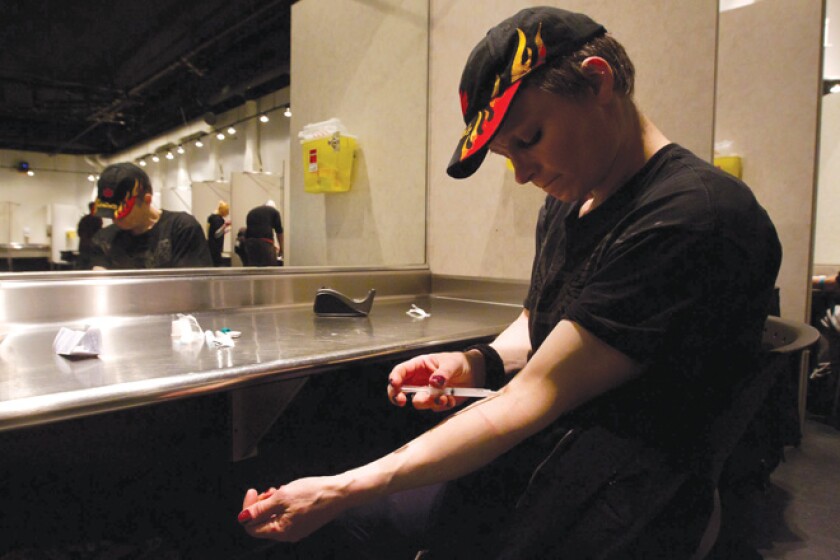Some worry that such programs encourage illegal drug use. But research generally shows that needle exchanges reduce the likelihood that diseases like HIV will spread. So Pence relented to the health experts, and the outbreak was quickly contained.
Pence’s dilemma was high-profile but not unique. Many state and local lawmakers have faced moral quandaries as the country struggles with historic numbers of opioid abuse and overdoses. Lawmakers on both sides of the aisle have expressed reservations about needle exchanges, yet their presence is growing in areas hardest-hit by the epidemic.
But if many politicians are reluctant to embrace needle exchanges, then they'll likely have a hard time with the latest frontier in the fight against opioid abuse: supervised injection facilities.
At these facilities, medical professionals provide addicts with sterile injection equipment so they can safely use illegal drugs they obtained from outside. They can also wait out the high and get information about and referrals to treatment.
There's only one supervised injection facility in North America. It's in Vancouver, Canada, and has been credited with preventing nearly 5,000 overdoses since it opened in 2003. Now two U.S. cities may open clinics of their own.
“It just shows how desperate we’ve gotten with this epidemic that this is something we’re looking into,” says Jay Butler, president of the Association of State and Territorial Health Officials.

DARRYL DYCK/AP
The supervised injection facility in Vancouver. (AP/The Canadian Press, Darryl Dyck)
Just across the Canadian border, Seattle and King County officials gave the green light for what will be the nation's first supervised injection facilities.
“This isn’t about enabling drug use," says Jeff Duchin, health officer of public health for the Seattle and King County Department of Health. "These are sick people, and they’re in danger of dying alone and outside. We want people to be able to be kept alive until they’re ready for treatment."
Seattle is in the midst of securing funding and finding two sites, which is why there's no date for when the facilities will open. They need to be somewhere with easy access for the most vulnerable populations and large enough to offer wraparound services like HIV testing and treatment.
San Francisco is also exploring the option. London Breed, president of the city's Board of Supervisors, plans to introduce legislation that would create a task force to study the implications of a supervised injection facility.
"I can’t say safe injection is the answer. It may not be," she said in a statement. "But I know we can’t be quiet anymore. We can’t hope the trouble away. We have to research."
Mayor Ed Lee initially voiced opposition but has since softened his stance.
“I had to kind of force myself to be open to the idea because it doesn’t come as a natural thing,” he said at an event in January.
Of course, Seattle and San Francisco are about as progressive as cities get. Getting support for these clinics in more moderate and conservative areas would likely be an uphill battle.









